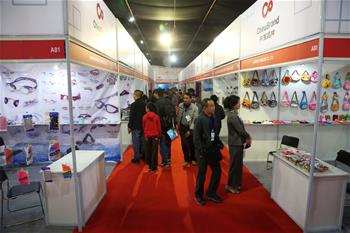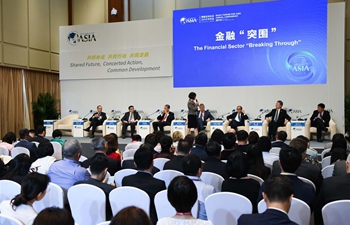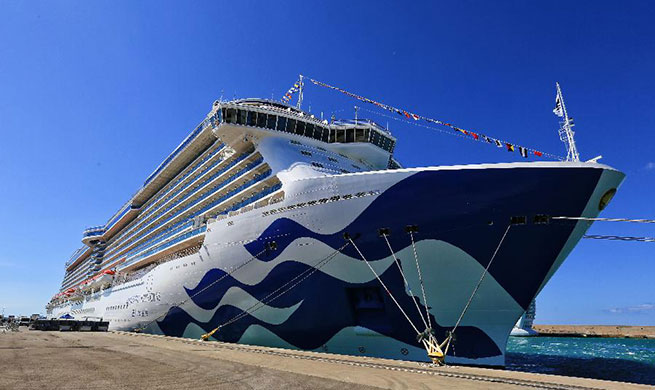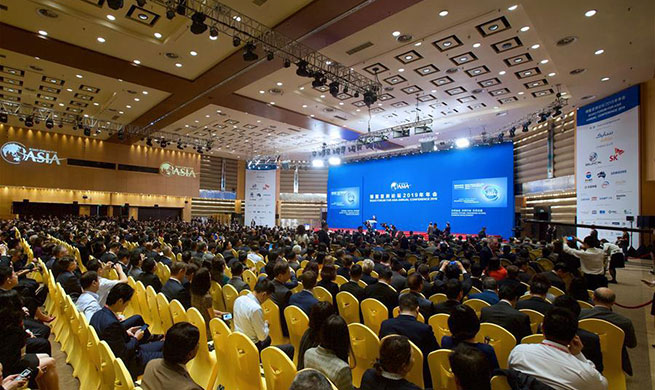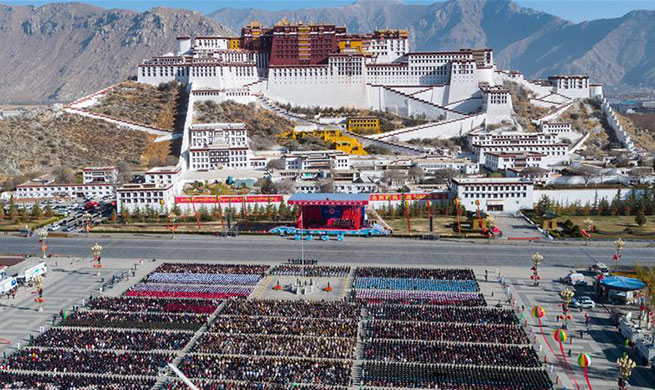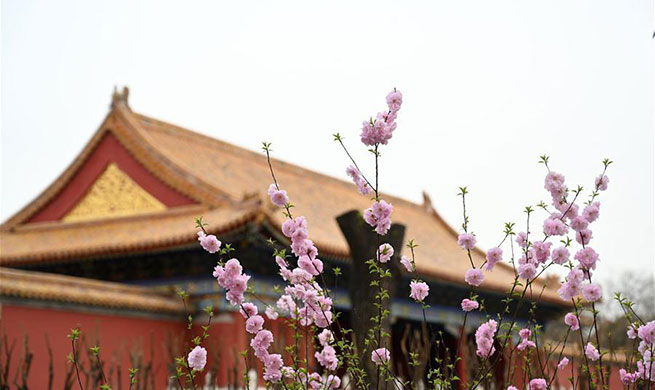by Abu Hanifah
JAKARTA, March 28 (Xinhua) -- The Chinese-built High Speed Railway (HSR) project will not only provide a faster train service linking Jakarta with Bandung in West Java, but help boost Indonesia's overall economy, a transportation expert said.
Set to be completed in 2021, the HSR link incorporating Chinese next-generation technology, will help elevate Indonesia's status in Southeast Asia, as it will be one of only a few countries operating such a modern transportation system, said Suryanto, deputy director of the Supervision and Consulting Consortium of the Jakarta-Bandung HSR.
The expert told Xinhua in a recent interview that the project will showcase brand-new technology, which has never been seen in Indonesia before.
He said the joint project comprises a myriad of new train-linked technologies that are being incorporated into infrastructural systems, signal and communication setups, electrical operation, train operation, as well as into maintenance systems.
"On the one hand, the project has presented some challenges, but on the other hand it has provided Indonesia with a golden opportunity to posses such a modern system of public transportation," said Suryanto.
"It was an opportunity we had to seize as it might not have presented itself again in the future," said the expert, who supervises all work related to the HSR project.
The high-speed train will be a game-changer for the future of transportation in Indonesia, as it will have the capacity to seat large numbers of people to travel en Jakarta and Bandung in just 45 minutes, significantly quicker than the 3.5 hours it currently takes, he said.
The project will also spur local economic growth along the HSR train's routes, Suryanto added.
The project sites are hives of construction activity, with work continuing around the clock to ensure the project stays on track.
Suryanto, hailing the effective development of communication between Chinese and Indonesian workers at the project sites, said he was optimistic that upcoming targets would be achieved.
He said that cultural differences between Chinese and Indonesian workers were not an issue and both sides were smoothly cooperating together for the advancement of the project.
"There's great chemistry between all the workers at all of our sites. Both sides have adapted well," Suryanto said, adding that celebrating both Chinese and Indonesian cultural festivals together had helped create a bond and mutual respect among the workers.
Owing to such chemistry, he said the transfer of Chinese technology and know-how to Indonesian workers could take place in real-time, while the various aspects of the project are being carried out.
"We are very grateful to our Chinese colleagues for patiently and expertly guiding our workers so they can carry out their tasks. Our Chinese colleagues also provide lectures on technologies used on the job sites, as well as on safety and regulatory protocols," he said.
The local expert on train projects said that Indonesia was lucky to get China's HSR technologies as it has the highest level of safety of its kind in the world.
"Traveling at speeds of 350 km per hour requires the very best in safety systems. China has such systems, including censor-based technology to ensure there are no mishaps during the train's operation," said Suryanto, who is also an executive of the Indonesian engineering consultancy firm Dardela Yasa Guna.
He, meanwhile, went on to explain that he envisioned the HSR train connecting cities on all big islands in Indonesia in the future, starting with projects in Sumatra and Java. He said it would further help spur the nation's economy.
More HSR tracks are planned to be laid in Java, extending the line from Bandung to West Java Kertajati International Airport, cities in the Central Java provinces of Semarang and Solo, and heading east to Surabaya, the capital of East Java province.
Another track linking Solo and Yogyakarta has also been included in the draft plan.
Thanks to the China-proposed Belt and Road Initiative (BRI) that effectively promotes mutual prosperity through extensive infrastructure projects carried out along the ancient Silk Road trade routes, countries like Indonesia can look forward to achieving substantial economic benefits, said Suryanto.
As infrastructure improves here, in twine with technological and reciprocal fiscal support from China, particularly in the transportation sector, Indonesia is on course to see significant economic growth, he said.
